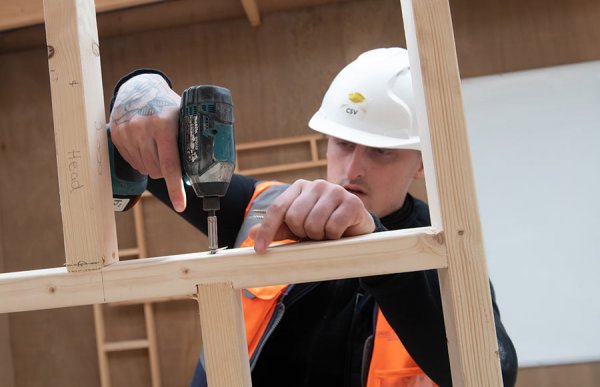Work begins on £11.7m Queens Gardens redevelopment
York awarded Purple Flag for evening economy excellence
York has been awarded the prestigious Purple Flag, for achieving excellence in the evening and night-time economy, joining cities, such as Bournemouth, Bristol, Halifax, Oxford and Winchester.
Senior councillors approve £7.2 million district heating extension
Commercial property company swoops for Bingley shopping centre
79% of business leaders expect to use remote working in the long-term
Brighouse fire safety firm acquired by Marlowe
Apprenticeship funding to create new opportunities in North Yorkshire
Funding is available to help North Yorkshire businesses invest in staff development through the delivery of apprenticeships within their workforce for new and existing staff.
Cubo hails demand at Wellington Place
Cubo has revealed it has seen positive demand for space at its new Wellington Place base as it opens its doors at the leading urban quarter.
The fast-growing co-working space provider has already signed up a number of occupiers, including a financial services company which has chosen Wellington Place in Leeds city centre as the location for its first operation outside London, taking a 50-seat office space.
Ranging from entrepreneurs beginning their commercial journeys to established businesses, Cubo at 6 Wellington Place has the capacity to accommodate more than 300 people at any one time over 19,821 sq ft of space.
The Cubo concept offers hot desking in communal spaces, designated desks in shared private offices and office space providing flexible opportunities for prospective occupiers, including smaller businesses on shorter lease terms and combined memberships for businesses who have both private office and hot desking requirements.
Cubo at Wellington Place is its fourth site since launching in Derby in early 2020 before the start of the Covid-19 pandemic.
Marc Brough, Founder and Managing Director at Cubo, said: “Cubo is proud to have opened its doors at Wellington Place as people continue to explore new ways of connecting, collaborating, being creative and productive.
“This is an approach that has been pioneered by the team behind Wellington Place since long before the pandemic hit, and one which has firmly established it as one of the north of England’s leading business communities, with people and place at its heart.
“We were confident that selecting a partner with the same ethos as Cubo to become the latest addition to our portfolio would be the right choice, and the interest we are already seeing to join the Wellington Place community has fully justified this.
“Cubo is committed to harnessing an inspirational, creative and enjoyable working environment, whether that be through private offices, a designated desk or hot desking. Our flexible membership offer, and availability of shorter lease terms has attracted an exciting mix of businesses and entrepreneurial talent across our sites and all this, coupled with the superbly designed space at 6 Wellington Place and the fantastic offer across the development, means we are looking forward to a bright future in Leeds and welcoming more occupiers.”
Paul Pavia, Commercial Director at MEPC, the developer and asset manager behind Wellington Place, said: “Cubo has created a proposition centred around enabling people to have positive experiences in how and where they work, helping them to not only succeed commercially but also personally.
“This very much aligns with our own values and our view that the workplace will become even more important as the pandemic ends. Therefore, we see Cubo as a perfect fit to open its doors within the Wellington Place community as we look forward to expanding our choice and offering as a socially cohesive place to work and visit throughout 2022 and beyond.
“In addition, Cubo’s opening in Leeds not only also demonstrates ongoing confidence in Wellington Place but also in the Leeds city centre office market.”
For more information please visit www.cubowork.com, email enquiries@cubowork.com or call 01332 977700.
For more information, visit https://www.wellingtonplace.co.uk/.












